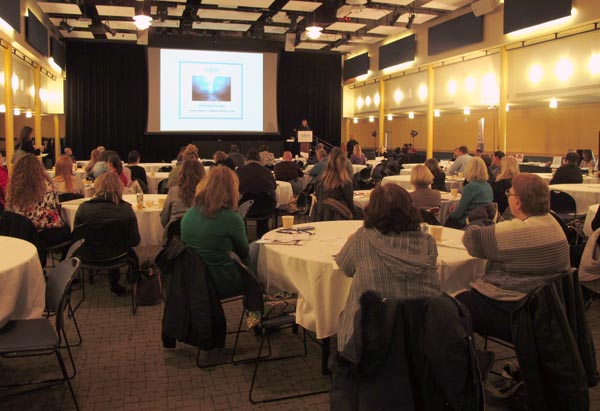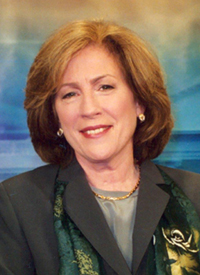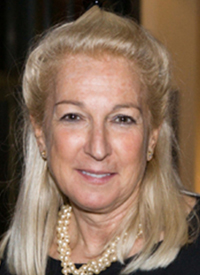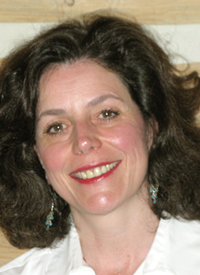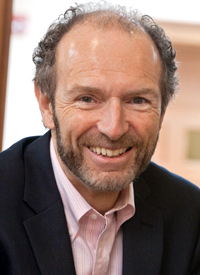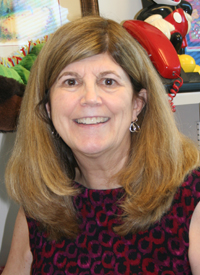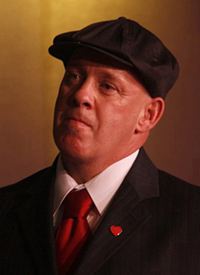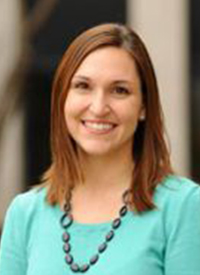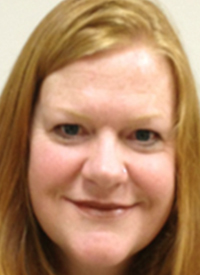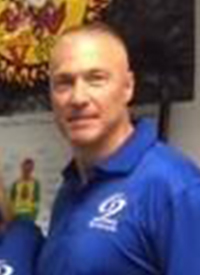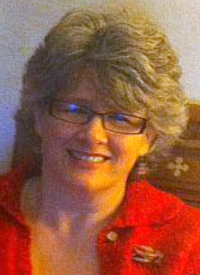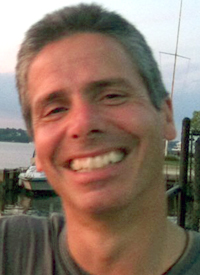VOICES NJ Resiliency Symposium | 2016

VOICES Center of Excellence for Community Resilience
New Jersey Symposium
Promoting Resiliency in Communities Impacted by Trauma
Wednesday, April 6th, 2016
Rutgers University | Livingston Campus Student Center
On Wednesday, April 6, 2016, VOICES hosted our New Jersey Symposium, "Promoting Resiliency in Communities Impacted by Trauma." The event featured presentations by accomplished subject matter experts and clinicians working in the field of trauma, grief and disaster mental health.
VOICES thanks the Centers for Disease Control and Prevention, the Rutgers School of Social Work and the United Way of Central Jersey for supporting this educational initiative.
The day-long event included the following speakers and presentations:
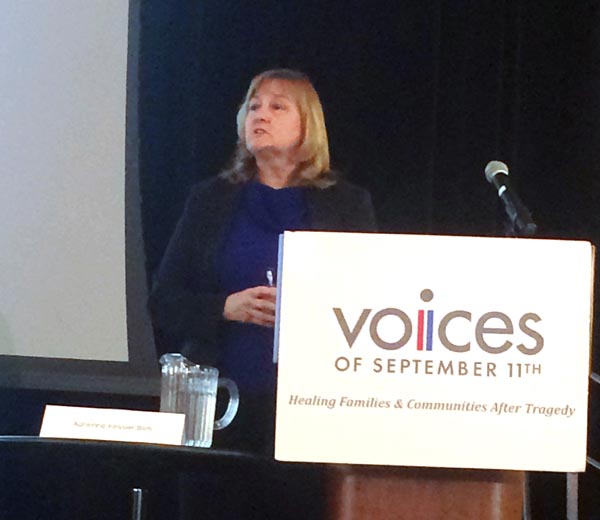 Adrienne Fessler Belli, Ph.D., LCSW, Director of the Disaster and Terrorism Branch of the New Jersey Division of Mental Health Services, provided opening remarks for the day, discussing how behavioral health for both victims and responders is a necessary component of disaster preparedness planning. "It is important to look at lessons learned after response to an event," noted Dr. Fessler Belli.
Adrienne Fessler Belli, Ph.D., LCSW, Director of the Disaster and Terrorism Branch of the New Jersey Division of Mental Health Services, provided opening remarks for the day, discussing how behavioral health for both victims and responders is a necessary component of disaster preparedness planning. "It is important to look at lessons learned after response to an event," noted Dr. Fessler Belli.VOICES Founding Director Mary Fetchet, LCSW, along with VOICES staff Lori A. Harris, MSW, LSW and Stephanie Landau presented on the long-term needs of victims' families, responders and survivors. Their presentation discussed VOICES' long term recovery and support model, emphasizing the importance of providing continuity of care and maintaining connectedness for those impacted by traumatic events. The presentation also highlighted the importance of public-private partnerships which facilitates the important work of VOICES outreach efforts to responders and survivors and helps qualified individuals apply to the World Trade Center Health Program. The next-generation of VOICES' 9/11 Living Memorial website that documents the 2,977 lives lost on 9/11 through an extensive collection of over 75,000 photographs was also introduced.
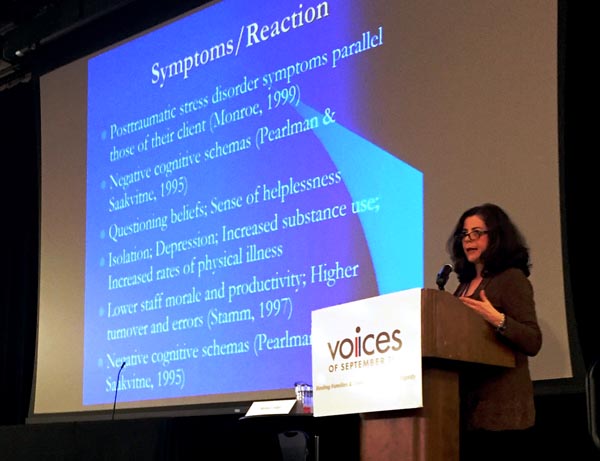 Next, we heard from Monica Indart, Psy.D., Assistant Professor at Rutgers University Graduate School of Applied and Professional Psychology. Dr. Indart, who has extensive experience working with humanitarian aid workers and victims of torture, discussed secondary traumatic stress among service providers. After defining STS and discussing its impact on the individual, she offered preventative and self-care strategies for those working with traumatized individuals.
Next, we heard from Monica Indart, Psy.D., Assistant Professor at Rutgers University Graduate School of Applied and Professional Psychology. Dr. Indart, who has extensive experience working with humanitarian aid workers and victims of torture, discussed secondary traumatic stress among service providers. After defining STS and discussing its impact on the individual, she offered preventative and self-care strategies for those working with traumatized individuals.Kean University's Chair of Counselor Education Barry Mascari, Ed.D., LPC, LCADC, DRCC and Kean lecturer and trauma counselor Jane Webber, Ph.D., LPC, DRCC discussed how the brain responds to stressful events and trauma. In their presentation, "Learning to Apply the Brakes Before Accelerating: Emotion Regulation to Reduce the Effects of Trauma," they outlined somatic and emotion regulation tools designed to ground those impacted by traumatic events and facilitate the journey of recovery.
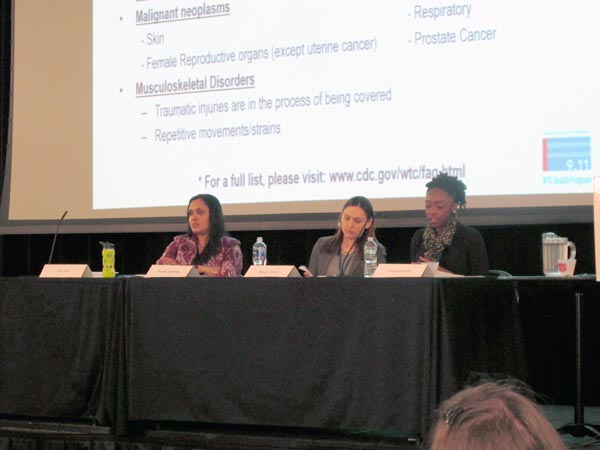 During their panel discussion, Bonnie Gordic, Psy.D., Mental Health Director for the Rutgers World Trade Center Health Program Clinical Center of Excellence, and Chauntel Wright, MPH, C.H.E.S., Outreach Coordinator for the WTCHP at the Rutgers center, outlined the conditions covered by the Program and discussed mental health trends and challenges that responders are dealing with 14 years after 9/11. Priyanka Upadhyaya, Psy.D, Clinical Psychologist at the World Trade Center Health Center at Bellevue, presented on mental health trends among the survivor population.
During their panel discussion, Bonnie Gordic, Psy.D., Mental Health Director for the Rutgers World Trade Center Health Program Clinical Center of Excellence, and Chauntel Wright, MPH, C.H.E.S., Outreach Coordinator for the WTCHP at the Rutgers center, outlined the conditions covered by the Program and discussed mental health trends and challenges that responders are dealing with 14 years after 9/11. Priyanka Upadhyaya, Psy.D, Clinical Psychologist at the World Trade Center Health Center at Bellevue, presented on mental health trends among the survivor population.Also, presenting at the Symposium on behalf of the New Jersey Disaster and Terrorism Branch, were Megan Sullivan, LPC, LCADC and Retired NJ State Police Captain Paul Miller. Their interactive presentation focused on the importance of culture-informed interventions when working with first responders exposed to trauma and outlined the ongoing challenges faced by this population.
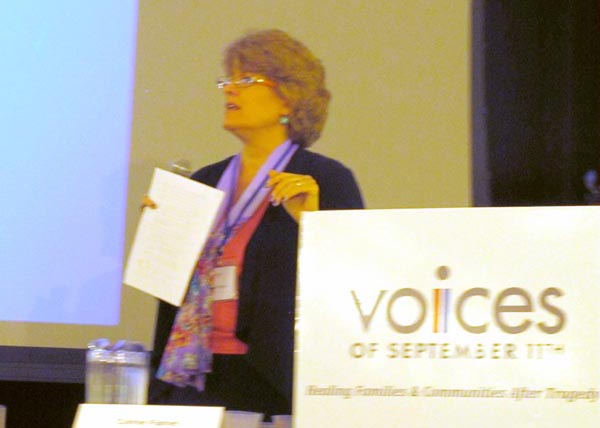 Connie Palmer, LCSW, Clinical and Training Director for Imagine, a Center for Coping with Loss, spoke about children's grief across the life cycle, and ways to foster resiliency among grieving children.
Connie Palmer, LCSW, Clinical and Training Director for Imagine, a Center for Coping with Loss, spoke about children's grief across the life cycle, and ways to foster resiliency among grieving children.Joining Ms. Palmer was Dylan Glasser, who lost his father Thomas on 9/11 and is also a Youth Facilitator at Imagine. Dylan shared his personal challenges and his growth experiences, following his father's death, which includes facilitating support groups for other grieving children.
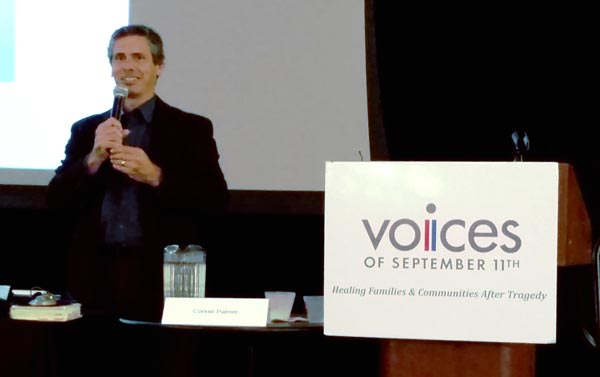 Ken Verni, Psy.D., Director of the New Jersey Center for Mindful Awareness, concluded the day with an Introduction to Mindfulness Practice. His interactive presentation demonstrated how Mindfulness Practice can facilitate our ability to respond instead of react to the personal, interpersonal and professional stressors that arise. It can also play a role in cultivating resilience and limiting the impact of trauma and vicarious trauma in providers of behavioral health services.
Ken Verni, Psy.D., Director of the New Jersey Center for Mindful Awareness, concluded the day with an Introduction to Mindfulness Practice. His interactive presentation demonstrated how Mindfulness Practice can facilitate our ability to respond instead of react to the personal, interpersonal and professional stressors that arise. It can also play a role in cultivating resilience and limiting the impact of trauma and vicarious trauma in providers of behavioral health services."Events like the Symposium provide us with the chance to come together as a community and provide information to victims' families, responders and survivors, and share lessons learned with those who are providing services," noted Ms. Fetchet. "We are grateful for the work of our presenters' and for their dedication to helping families and communities by promoting hope and healing in the lives of those they work with."
The Symposium is an initiative of VOICES Center of Excellence for Community Resilience, as part of the organization's commitment to helping families and communities heal after tragedies. VOICES Center of Excellence is a collaborative initiative, working with public/private partnerships to advance research, discourse and dialogue on issues that impact the long-term recovery of victims' families, responders, and survivors.
Annual Symposium Agenda
Opening Remarks
Director, Disaster & Terrorism Branch
NJ Division of Mental Health Services
NJ Division of Mental Health Services
Identifying the Long-Term Needs of the 9/11 Community: Promoting Resiliency in Families, Survivors and Responders
This panel will discuss VOICES work over the past 15 years with 9/11 families, responders and survivors. Panelists will summarize the long-term needs and roads to resilience.
Strategies for Coping with Secondary Traumatic Stress After a Disaster
Assistant Professor, Rutgers University Graduate School of Applied and Professional Psychology
This session will identify secondary traumatic stress (STS) and differentiate it from other types of distress responses, describe the psychological mechanisms that are triggered in the body/brain and introduce several evidence-informed strategies for helping avoid STS as well as decreasing symptoms when they do arise.
Learning to Apply the Brakes Before Accelerating: Emotion Regulation to Reduce the Effects of Trauma
Associate Professor and Chair, Counselor Education Department
Nathan Weiss Graduate College, Kean University
Nathan Weiss Graduate College, Kean University
Lecturer, Counselor Education Department
Nathan Weiss Graduate College, Kean University
Nathan Weiss Graduate College, Kean University
This workshop will discuss traumatic responses and the mechanisms of emotion regulation. The presenters will demonstrate simple, easy-to-execute techniques to help persons regulate emotionally before moving forward to resolve trauma.
Clarification about the Reauthorization of the Zadroga Act: Persisting Trends in Physical and Mental Health Treatment
Mental Health Director
Rutgers World Trade Center Health Program
Clinical Center of Excellence
Rutgers World Trade Center Health Program
Clinical Center of Excellence
Clinical Psychologist/Clinical Instructor
World Trade Center Environmental Health Center
Bellevue Hospital
World Trade Center Environmental Health Center
Bellevue Hospital
Outreach/Member Services Coordinator
World Trade Center Health Program at Rutgers/EOHSI
World Trade Center Health Program at Rutgers/EOHSI
WTCHP professionals working at the clinical centers will discuss outreach efforts, medical and mental health treatment for responders and survivors. Panelists will also discuss the impact of the reauthorization of the Zadroga Act.
Working with First Responders Exposed to Trauma
Deputy Director
Disaster and Terrorism Branch, NJ Division of Mental Health Services
Disaster and Terrorism Branch, NJ Division of Mental Health Services
First Responder Coordinator, Disaster and Terrorism Branch
NJ DHS-Division of Mental Health and Addiction Services
Retired Captain NJ State Police
NJ DHS-Division of Mental Health and Addiction Services
Retired Captain NJ State Police
The work of first responders (typically but not exclusively law enforcement officers, EMTs, and firefighters) is inherently stressful and frequently exposes them to traumatic situations. This presentation will examine these unique differences and their implications in providing crisis response to first responders. It will also review different types of crisis intervention services, including what can be used, when and how.
Children's Grief Across the Life Cycle: Fostering Resiliency
This workshop will explore ways to support grieving children at different developmental stages. The presentation will also include interventions and strategies that foster resilience for those who continue to grieve especially during times of life transition. Joining the discussion will be Dylan Glasser, a Youth Facilitator at Imagine and the son of Thomas Glasser who died on 9/11.
How to Find Balance in Our Stressful Lives: An Introduction to Mindfulness Practice
Annual Symposium Invitation

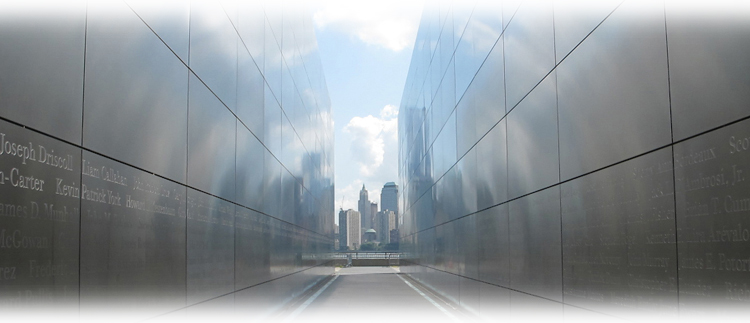
VOICES Center of Excellence for Community Resilience
New Jersey Symposium
Promoting Resilience in Communities Impacted by Trauma
Wednesday, April 6th, 2016
Registration 8:30am
9:00am - 4:00pm
Rutgers University
Livingston Campus Student Center
84 Joyce Kilmer Avenue | Piscataway, NJ
Continental breakfast and lunch included
Questions? Contact us at 203-966-3911 or info [at] voicesofsept11.org (info[at]voicesofsept11[dot]org)

